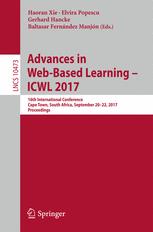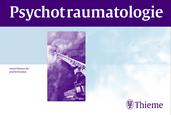Publications
Scroll down to browse the publications that have developed out of, or are connected to, the project.

DNR and the Use of Blended Learning Methodology in German Police Education
Abstract
The article purposes to examine the opportunities and challenges of introducing blended learning modules for the facilitation of reflexive learning within the police force. It will discuss the conceptualization of ‘DNR’ (Death Notification with Responsibility), a blended learning course for police students in Germany which focuses on the administering of death notifications according to both professional and legal requirements, reacting flexibly and compassionately to the needs of the bereaved. DNR has two main aims: (1) the imparting of crucial factual knowledge, and (2) the creation of opportunities for intensified reflexive and participatory learning. The concept combines classroom-based learning with e-learning modules. E-learning components allow students to engage with the sensitive issue of death notification at their own pace; when and where they feel comfortable. The overall course objectives are complicated by the police’s hierarchical organizational structure, as well as the preference of experience-based, on-the-job learning, and a general mistrust towards ‘academization’ of police education in Germany.
Brand M., Mahlke K. (2017) DNR and the Use of Blended Learning Methodology in German Police Education. In: Xie H., Popescu E., Hancke G., Fernández Manjón B. (eds) Advances in Web-Based Learning – ICWL 2017. ICWL 2017. Lecture Notes in Computer Science, vol 10473. Springer, Cham

The irreality of death
Experiences and thoughts for supporting the victims of traffic accidents and their relatives
Abstract
The text documents the results of a study on the effects of fatal traffic accidents. It is addressed to all institutions (police, fire brigade, hospitals, undertakers, etc.) with professional responsibilities in this area. The study investigated the psychosocial situation not only of the immediate victims, but, for the first time, also that of their relatives. Given the fact that virtually all respondents continued to suffer from severe psychological and social problems a year after the event, it suggests concrete steps for improving the support provided to victims and their relatives from the time of the accident right up to the conclusion of the legal proceedings. The study revealed that, in general, fatal accidents and, as a corollary, the death of loved ones, often remain ungraspable for years after the event and, as such, unreal. Access to detailed information from the time the accident is recorded as well as concrete access to the dead person(s) are thus important elements that can help turn death into a “real” experience for the bereaved.
Trappe, T.: Die Unwirklichkeit des Todes. Erfahrungen und Überlegungen bei der Begleitung von Verkehrsunfallopfern und ihren Angehörigen. Psychotraumatologie 2 (3), 17 (2001)
